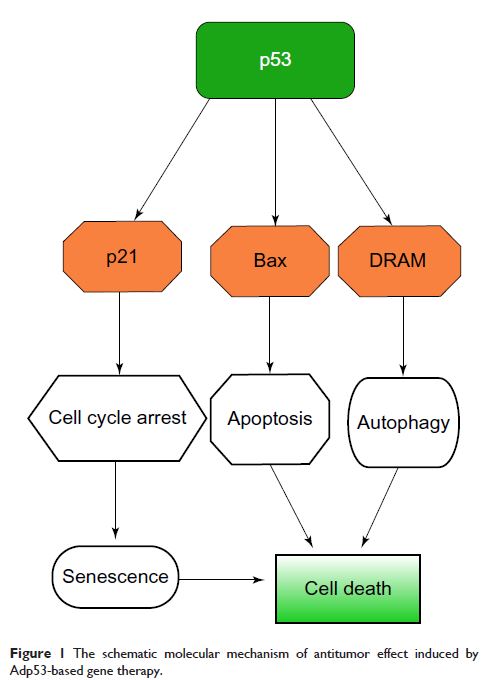109229
论文已发表
注册即可获取德孚的最新动态
IF 收录期刊
- 3.4 Breast Cancer (Dove Med Press)
- 3.2 Clin Epidemiol
- 2.6 Cancer Manag Res
- 2.9 Infect Drug Resist
- 3.7 Clin Interv Aging
- 5.1 Drug Des Dev Ther
- 3.1 Int J Chronic Obstr
- 6.6 Int J Nanomed
- 2.6 Int J Women's Health
- 2.9 Neuropsych Dis Treat
- 2.8 OncoTargets Ther
- 2.0 Patient Prefer Adher
- 2.2 Ther Clin Risk Manag
- 2.5 J Pain Res
- 3.0 Diabet Metab Synd Ob
- 3.2 Psychol Res Behav Ma
- 3.4 Nat Sci Sleep
- 1.8 Pharmgenomics Pers Med
- 2.0 Risk Manag Healthc Policy
- 4.1 J Inflamm Res
- 2.0 Int J Gen Med
- 3.4 J Hepatocell Carcinoma
- 3.0 J Asthma Allergy
- 2.2 Clin Cosmet Investig Dermatol
- 2.4 J Multidiscip Healthc

已发表论文
重组腺病毒人类 p53 基因治疗的临床应用:目前的观点
Authors Chen GX, Zhang S, He XH, Liu SY, Ma C, Zou XP
Published Date October 2014 Volume 2014:7 Pages 1901—1909
DOI http://dx.doi.org/10.2147/OTT.S50483
Received 8 May 2014, Accepted 15 July 2014, Published 21 October 2014
Abstract: Gene therapy has promised to be a highly effective antitumor treatment by introducing a tumor suppressor gene or the abrogation of an oncogene. Among the potential therapeutic transgenes, the tumor suppressor gene p53 serves as an attractive target. Restoration of wild-type p53 function in tumors can be achieved by introduction of an intact complementary deoxyribonucleic acid copy of the p53 gene using a suitable viral vector, in most cases an adenoviral vector (Adp53). Preclinical in vitro and in vivo studies have shown that Adp53 triggers a dramatic tumor regression response in various cancers. These viruses are engineered to lack certain early proteins and are thus replication defective, including Gendicine, SCH-58500, and Advexin. Several types of tumor-specific p53-expressing conditionally replicating adenovirus vectors (known as replication-competent CRAdp53 vectors) have been developed, such as ONYX 015, AdDelta24-p53, SG600-p53, OBP-702, and H101. Various clinical trials have been conducted to investigate the safety and efficiency of these adenoviral vectors. In this review we will talk about the biological mechanisms, clinical utility, and therapeutic potentials of the replication-deficient Adp53-based and replication-competent CRAdp53-based gene therapy.
Keywords: adenovirus, Adp53, CRAdp53
Keywords: adenovirus, Adp53, CRAdp53
